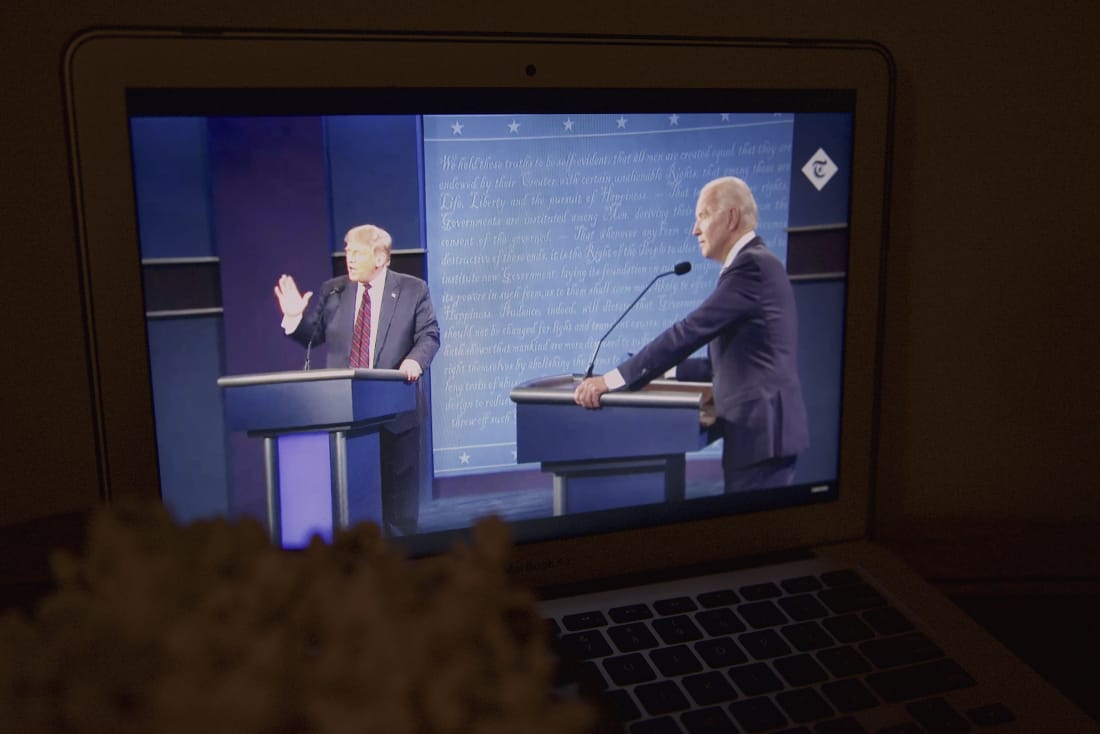
In the midst of an American election year, it’s sobering to think about the issues at stake. The country’s response to COVID-19. The threat of foreign interference in the election. An overdue racial reckoning. There is absolutely no shortage of problems.
Yet, at the first presidential debate, instead of a serious discussion the moderator struggled to keep one candidate quiet long enough to let the other speak. A productive discussion, alright.
Should we have expected anything different? Perhaps not — we’ve been through this rodeo before. The memories of the 2016 election are still in most of our rear-view mirrors, yet, one can hope right? Hope that the grave public-health situation brings out the best in leadership. Or in the worst case, enough decency to conduct a debate with someone of an opposing point of view.
Instead, the 90-minute debate descended quickly into a chaotic mess of personal ad hominem attacks — at one point the president mockingly asked Joe Biden “Did you use the word “smart”? — and so many interruptions that at one point everyone, including the candidates, forgot the question asked. You know a discussion is going nowhere when “Will you shut up man?”, said to the U.S. president, is arguably not the worst line of the night.
More than anything, the debate was a reminder of why so many dislike politics and distrust the government to get anything done. Is there even a takeaway from this debate — best described by American journalist Jake Tapper as a “hot mess inside of a dumpster fire inside a train wreck”?
Much has been said about that night’s debacle by political pundits, campaign advisors and newspapers on who won and how this debate changes the race. However, in these conclusions there is a third party that has been overlooked — the American people.
Beyond the two parties vying for the White House, this race is about Americans choosing the representatives — the president, Senate and House of Representatives — of their democracy. Debates are supposed to provide one more platform for candidates to contrast their points of view, positions and policies. They are absolutely essential and when done right, democracy thrives, but when done wrong they leave citizens wondering why they even bothered tuning in.
Those feelings of disappointment and fatigue over the state of politics are open invitations to disengage from the democratic process or further retreat into one’s own information bubble — both choices have dangerous consequences.
When we see the president refuse to condemn white supremacists and not have enough self-resistant to wait for the other candidate to complete a sentence, we are left to wonder if the stereotype of a politician has some truth to it and whether politics will ever represent everyone and not just the few.
When the response of both candidates to every point the other makes is something along the lines of “you are wrong”, we are left to wonder whether the two candidates live in fundamentally different worlds and whether we live on the same planet as either.
In all cases, rather than sifting through the weeds to find the answers, disengagement seems like the easier route — both on the mind and soul.
The challenges America faces are endless and the American people deserve a space to see their leadership candidates battle it out, not with personal insults, but with ideas and policies. They deserve debates that are fact-based, don’t allow the integrity of an ongoing election to be questioned, are consensus-builders, and leave people knowing whether or not the candidates for presidency understand the pressing issues of the day, and what they are willing to do to tackle them.
No one candidate is going to be agreeable for everyone, but everyone deserves to know that whoever wins will govern for all. Debates should be tests of that exactly — whether the commander-in-chief can also be the unifier-in-chief.
To once again make debates strengthen democracy — not the opposite — will require a restructuring of the debate format and a democratization of the question-making process to include as many people as possible, not just a handful . Most important though, it will require all of us to expect more from debates and hold leaders accountable to delivering answers, rather than talking points.
These are tall orders, especially in the increasingly polarized world we live in. But, when democracy itself is crying out for help, we must do better.
—
Vaidehee Lanke | Opinions Editor
Photo: Ammara Syeda | Photo Editor
Leave a Reply